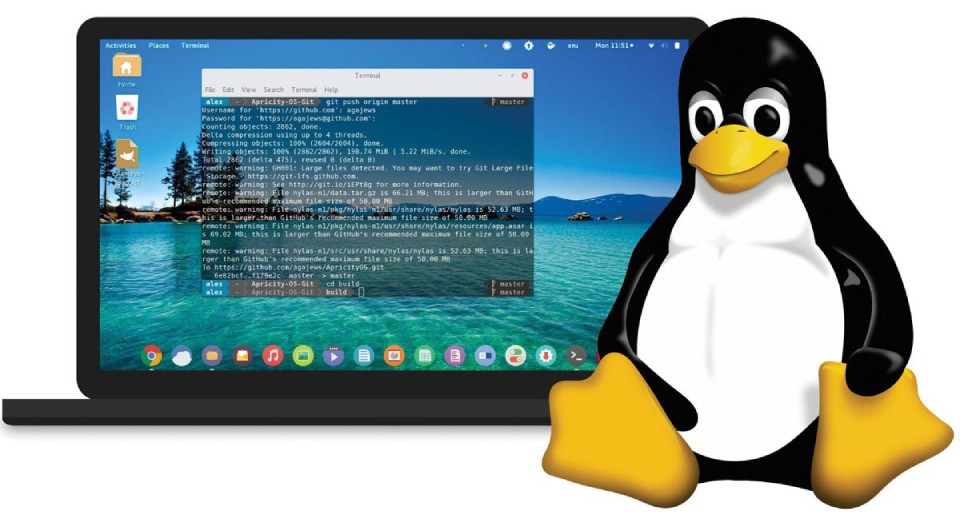Exploring the World of Linux
Welcome to the fascinating realm of Linux, a powerful operating system that has been shaping the digital landscape for decades. Whether you are a seasoned IT professional, a curious enthusiast, or a newcomer eager to learn more about this open-source software, this comprehensive guide will take you on a journey through the intricate world of Linux. From its humble beginnings to its widespread use in today’s tech-driven society, we will delve deep into the history, the applications, and the future of Linux. So, let’s begin our exploration of this revolutionary operating system.
The Origins of Linux

Linux, often referred to as GNU/Linux, is a Unix-like operating system kernel developed by Linus Torvalds in 1991. Inspired by Minix, a Unix-like OS created by Andrew S. Tanenbaum, Torvalds set out to create a free and open-source alternative that would be accessible to everyone. The name “Linux” is a combination of Linus’ first name and the word “Unix,” indicating its roots in the Unix operating system.
One of the key features of Linux is its open-source nature, which means that the source code is freely available to the public, allowing users to modify, distribute, and enhance the software as they see fit. This collaborative approach has led to the development of various distributions, or “distros,” each tailored to meet the specific needs of different users.
Linux in the Digital Landscape
Linux has become a dominant force in the digital landscape, powering a wide range of devices and systems, from smartphones and tablets to servers and supercomputers. Its versatility, stability, and security features have made it a popular choice for businesses, governments, and individuals alike.
One of the most notable applications of Linux is in the server market, where it is widely used to host websites, run databases, and manage network services. Popular server distributions like Ubuntu Server, CentOS, and Debian have become go-to choices for companies looking to build reliable and secure infrastructures.
Linux’s influence extends beyond traditional computing devices, with embedded systems, IoT devices, and cloud services also relying on the robustness of the Linux kernel. Its scalability and flexibility make it an ideal platform for a wide range of applications, from smart home devices to autonomous vehicles.
The Future of Linux
As technology continues to evolve, the future of Linux looks promising, with ongoing development and innovation driving its growth. The rise of containerization technologies like Docker and Kubernetes has further solidified Linux’s position as a leading platform for cloud computing and DevOps practices.
Artificial intelligence and machine learning are also areas where Linux is playing a crucial role, with frameworks like TensorFlow and PyTorch leveraging the power of Linux to deliver cutting-edge AI solutions. The open-source community surrounding Linux fosters collaboration and knowledge sharing, leading to advancements in various fields.
With the emergence of edge computing and 5G networks, Linux is poised to become even more pervasive, enabling seamless connectivity and processing at the edge of networks. Its scalability and reliability make it an ideal choice for handling the demands of a hyperconnected world.
Security and Controversies
While Linux is known for its security and stability, it is not immune to vulnerabilities and controversies. The open-source nature of Linux means that security flaws can be quickly identified and patched, but it also makes it a target for cyberattacks and malware.
Controversies surrounding the use of proprietary drivers, closed-source firmware, and patent issues have sparked debates within the Linux community. The balance between open-source ideals and practical considerations continues to be a topic of discussion among developers and users alike.
Despite these challenges, the collaborative nature of the Linux community ensures that issues are addressed transparently, with a focus on maintaining the integrity and security of the software. Regular updates and security patches help mitigate risks and keep Linux users protected.
Expert Opinions
According to Richard Stallman, the founder of the Free Software Foundation, “Linux has been a driving force in promoting the ideals of free and open-source software, empowering users to take control of their digital lives.” Stallman’s advocacy for software freedom has been influential in shaping the ethos of the Linux community.
Linus Torvalds himself has expressed his vision for the future of Linux, stating that “I want Linux to continue to be a collaborative effort, driven by a passion for innovation and a commitment to excellence.” Torvalds’ leadership has guided the development of Linux and inspired countless developers to contribute to its success.
Common Misconceptions
One common misconception about Linux is that it is difficult to use for beginners or non-technical users. While Linux does have a reputation for being more complex than some commercial operating systems, modern distributions like Ubuntu and Linux Mint have made significant strides in usability and user-friendliness.
Another misconception is that Linux lacks software compatibility, with some users believing that popular applications and games are not available for Linux. However, the Linux ecosystem has a vast repository of software, including open-source alternatives and compatibility layers like Wine that allow users to run Windows applications on Linux.
Comparative Analysis
When comparing Linux to other operating systems like Windows and macOS, several key differences emerge. Linux’s open-source nature and community-driven development model set it apart from proprietary systems, giving users more control over their computing experience.
Windows is known for its widespread use in the consumer market, with a focus on compatibility and ease of use. macOS, on the other hand, is favored by creatives and professionals for its sleek design and seamless integration with Apple hardware. Each operating system has its strengths and weaknesses, catering to different user preferences.
FAQs
Q: Is Linux free to use?
A: Yes, Linux is free to download, use, and modify. Most distributions come with a wide range of software packages, allowing users to customize their experience to suit their needs.
Q: Can I run Windows applications on Linux?
A: While Linux does not natively support Windows applications, tools like Wine and PlayOnLinux provide compatibility layers that allow users to run certain Windows software on Linux systems.
Q: Is Linux secure?
A: Linux is known for its security features, including regular updates, user permissions, and a robust architecture. However, like any operating system, it is important to practice good security hygiene to protect your system.
To Wrap Things Up
In conclusion, exploring the world of Linux reveals a vast and dynamic ecosystem that continues to shape the digital landscape. From its origins as a passion project to its current status as a leading operating system, Linux embodies the principles of collaboration, innovation, and freedom that define the open-source movement.
As we look to the future, Linux remains at the forefront of technological advancements, driving progress in AI, cloud computing, and edge computing. Its community-driven development model and commitment to security ensure that Linux will continue to thrive in an ever-changing world.
Whether you are a developer, a sysadmin, or a casual user, exploring the world of Linux offers a unique opportunity to engage with a vibrant community, contribute to open-source projects, and expand your knowledge of computing. Embrace the spirit of Linux and discover the endless possibilities that await in this innovative and empowering operating system.




